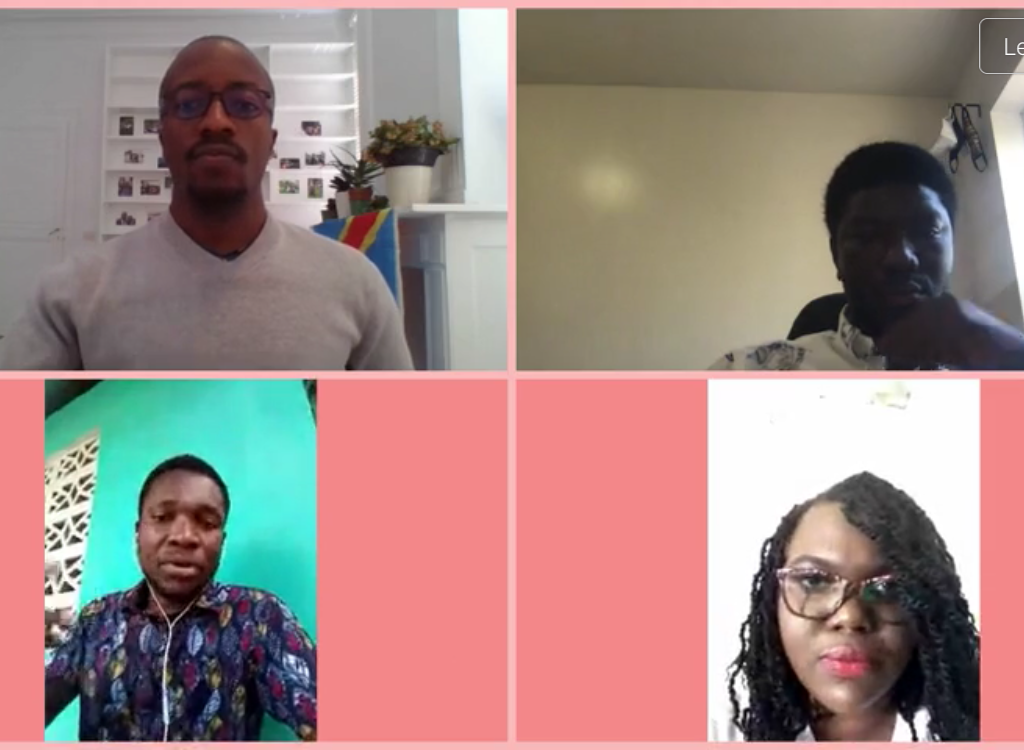
Local peacebuilders in the frontlines of COVID-19 responses
As fears of the pandemic spreading in the Global South continue to expose vulnerabilities of local peacebuilding, by early April 2020 Peace Direct, Humanity United, and CSP conducted online consultations with 400 local peacebuilders from 60 countries to gage the impact of the pandemic on local peacebuilding. Subsequently, a report detailing the findings and recommendations of the online consultations was recently published and is accessible here. Following up on one of the recommendations of local peacebuilders to continue interacting during lockdown and sharing useful information and resources among each other, CSP launched this online platform, which also allows for local peacebuilders to start thematic and regionally- focused discussions in connection to local peacebuilding and Covid19. Parallel to this effort, in collaboration with Peacemaker 360, CSP has continued holding weekly livestreamed discussions—drawing weekly insights on how local peacebuilders are navigating the challenges of peacebuilding during and beyond the pandemic. This blog post highlights five important takeaways from CSP’s continued consultations in April with local peacebuilders from Colombia, Afghanistan, Kenya, DR Congo, South Sudan, USA, Ivory Coast, Sierra Leone, and Haiti.
#1 Lockdown measures are having severe consequences by further reducing the already shrinking civic spaces and escalating human rights violations. In places like Kenya and the DR Congo, the abuse of power by military and police to enforce social distancing and lockdown measures has intensified, making it almost impossible for people depending on the informal economy to survive on daily basis. The heightening of human rights abuses amid the pandemic has also highlighted the need among local peacebuilders to collect evidence of affected demographics to support advocacy efforts for greater protection of civilians from forceful use of power during the pandemic.
#2 Structural inequalities exacerbated: in most countries, the pandemic has amplified structural inequalities by revealing the inadequate and insufficient health infrastructure to deal with the crisis. Even in developed countries like the US, due to structural and racial injustices, African American communities are highly at-risk of succumbing to the pandemic and many face economic precarity such that they cannot afford covid19-related health care. In Colombia, Venezuelan migrants, Indigenous communities, and Afro-Colombian communities are highly vulnerable during the crisis but have received limited attention from government and humanitarian agencies.
#3 Fragmentations between urban and rural responses: in many countries, the main focus of COVID-19 responses has been centered in big cities, leaving communities in rural areas with inadequate support to respond to the pandemic. In places like Sierra Leone, local peacebuilders are bridging the gap by supporting health workers in sensitizing rural communities on prevention tips against the pandemic. Furthermore, understanding that disinformation can drive prejudice and stigma, in places like Haiti, local peacebuilders in rural areas are challenging incitement to violence towards people affected with Covid19.
#4 Do No Harm with International aid: Local peacebuilders understand the importance of global solidarity in responding to the pandemic but are also aware that when international support lands only in hands of the ‘usual suspects’ of civil society organizations in urban settings or the ones with access to international donors, it runs the risk of further exacerbating inequalities and widen fragmentations among local actors. Furthermore, it is critical for international support to be administered in a way that ensures that individuals and communities most at risk have access to needed support and that local peacebuilding initiatives are enhanced now and beyond the crisis.
#5 Copy-paste responses from the Global North are quite problematic to local contexts: The one-size-fits-all approach to COVID-19 response based on what’s done / what is working in the Global North (like social distancing to flatten the curve) are almost impossible to implement in urban slums, for example, where populations are by design congested.
Join us this Saturday May 2 for another livestreamed discussion that will specifically focus on mental health and local peacebuilding during the pandemic.
